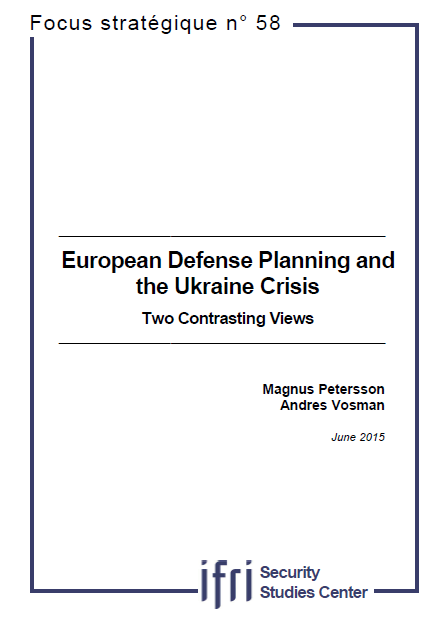European Defense Planning and the Ukraine Crisis: Two Contrasting Views

As the Ukrainian crisis continues, it is now clear that Europe is facing a new strategic environment and needs to adapt.
These developments challenge the expeditionary posture adopted by NATO over the last twenty years, and imply a need to rethink the demand for strengthening collective defense and reassurance capabilities. The two papers presented in this issue approach this question from different angles. On the one hand, an outlook based on the Estonian experience as a frontline state, supports the idea to reinvest in heavy conventional capabilities. On the other hand, a more organizational approach, embodied by the concept of “joint force generation,” which proposes keeping the same force structure while binding European militaries together with common support platforms.
This Focus Stratégique was published with the support of RESET Program.
Download the full analysis
This page contains only a summary of our work. If you would like to have access to all the information from our research on the subject, you can download the full version in PDF format.
European Defense Planning and the Ukraine Crisis: Two Contrasting Views
Related centers and programs
Discover our other research centers and programsFind out more
Discover all our analysesThe Franco-German Brigade and the Revival of European Defense
One thing has been clear since Donald Trump's return to the White House: the very existence of the European unification project is threatened. Unless it develops a sovereign defense policy to counter the war in Ukraine and the weakening of American security guarantees, the European Union will continue to see its internal cohesion and external attractiveness wane.
Taking the Pulse: Can Europeans Build Their Independent Extended Nuclear Deterrent?
Confronted with a U.S. disengagement and the Russian threat, Europeans are reconsidering their stance on nuclear deterrence. Given the capabilities of the French and British arsenals, can Europe develop an independent nuclear deterrent?

RAMSES 2024. A World to Be Remade
For its 42nd edition, RAMSES 2024 identifies three major challenges for 2024.
A Transatlantic Defense Industrial Base? Two Contrasting Views
The evolving landscape of global defense cooperation has brought the transatlantic relationship between the United States (US) and Europe into sharp focus. As geopolitical tensions rise and the threat environment becomes more complex, the question of how Europe can best ensure its security while navigating its relationship with the United States has become paramount. This double feature report offers two contrasting views on the dynamics of US-Europe defense industrial relations, highlighting the challenges and opportunities that lie ahead for both parties.








